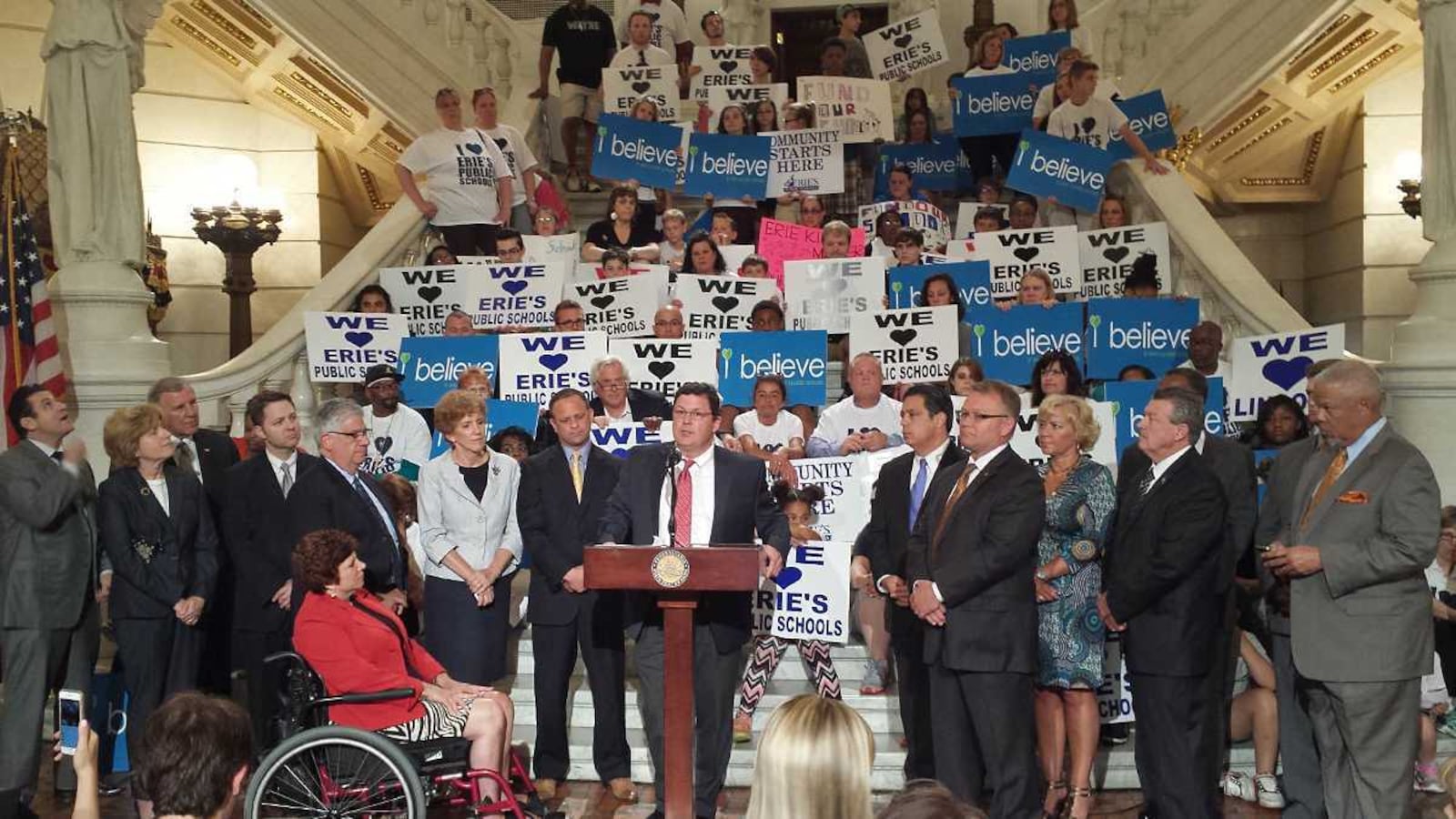This article was originally published in The Notebook. In August 2020, The Notebook became Chalkbeat Philadelphia.
Urban school districts in Pennsylvania face a particularly cruel logic. They serve the poorest, most needy students, yet when it comes to state funding per pupil, most of them don’t make the top of the list.
That dynamic has come to a head in Erie, where leaders of one of the largest school systems in the state are contemplating closing all high schools.
In early June, busloads of people from Erie made the nearly five-hour trip to Harrisburg to deliver a simple message to any lawmaker who would listen.
The chant of "Fund our schools! Please! Fund our schools! Please!" came from parents, students, educators, and community members standing on the steps of the grand Capitol Rotunda.
Leading the group was Jay Badams, who — in the face of Pennsylvania’s systemic school-funding inequities — has become the most vocal, crusading superintendent in the state.
"We can’t take any more away from our children," he said. "So I’m asking all of you, just please, please remember Erie."
In May, Badams made headlines for drawing a line in the sand. After six years of austerity under his tenure, he urged Erie’s school board to adopt an out-of-balance budget to avoid more cuts that would eliminate sports, arts, music, extracurriculars and guidance counselors.
At the same time, he asked the board to study the possibility of closing all of Erie’s high schools after the upcoming school year and sending students to the outlying, better-resourced suburban districts.
In an interview in his office in downtown Erie after the Harrisburg rally, Badams acknowledged that the school closure plan has to do with much more than short-term fiscal constraints.
"This becomes a matter of fairness," he said. "And if our students would need to attend schools in other districts in order to have some sort of equity, then that may end up being the most ethical and moral decision."


